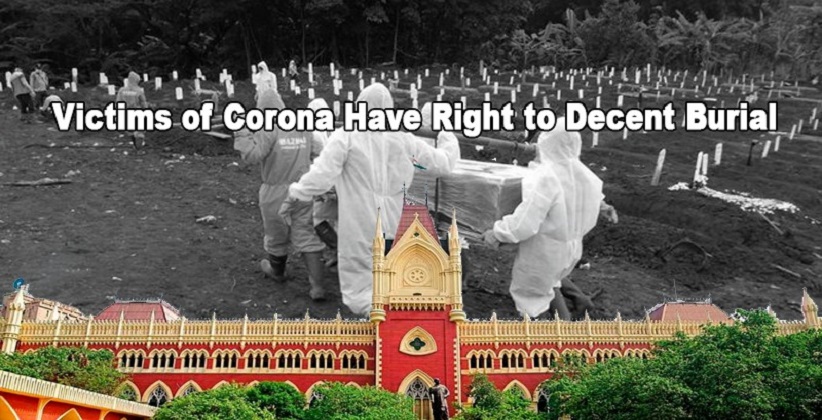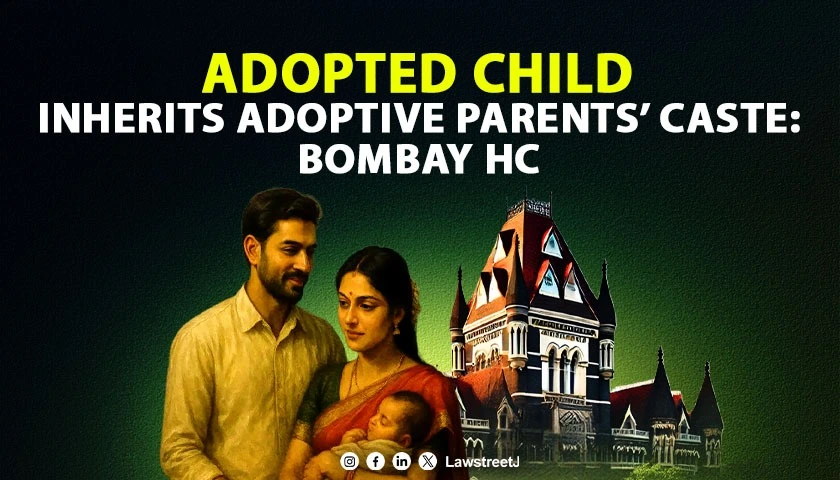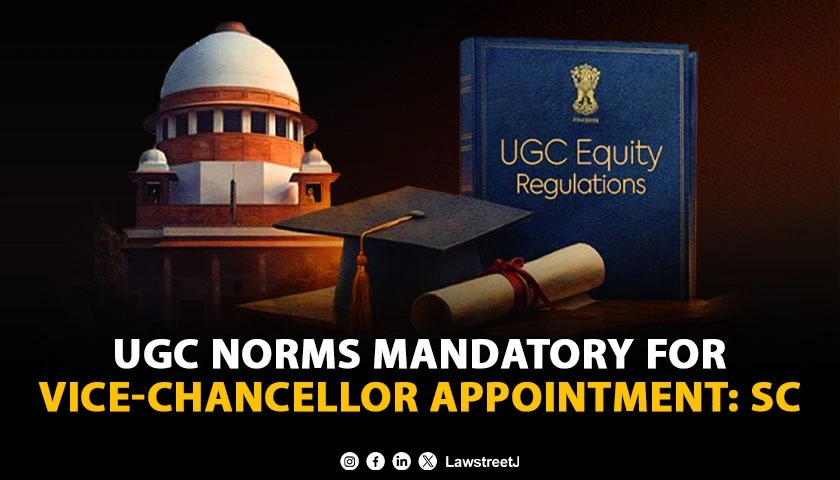Since this pandemic has started, the body of the person who died due to this deadly Coronavirus is not given to their family members but was buried by the hospital authorities itself. This step was taken keeping in mind that dead bodies also carry this virus and if the bodies were given to the family members, the family members would also get infected. So just to control and minimize the spread of this virus the government took this step.
Now as we all know Right to Decent Burial is our fundamental right and upon this, a PIL was filed in Calcutta High Court raising the following issues:-
i) The human remains/dead bodies of persons inflicted with Covid-19 are being disposed of by the administration unceremoniously and in an undignified manner without showing even a semblance of respect to the mortal remains.
ii) Relatives and friends of persons admitted to hospitals with Covid-19 or persons who have contracted the disease whilst in hospitals having been admitted for some other malady, and who subsequently passed away, are not being permitted to have a last look at or to pay last respect to the mortal remains of the dead person and to perform the last rites.
iii) There is no proper reporting of Covid-19 cases or Covid-19 deaths.
iv) District wise lists should be published containing names of all persons infected with Covid-19.
The court was of the view that There is no scope for doubt anymore that the right to life enshrined in Article 21 of the Constitution of India includes the right to life with dignity. We agree with the submission of the petitioner that living with dignity includes not only the dignity of a person when he is alive but also the dignity following his death. The right to dignity and fair treatment under Article 21 of the Constitution is not only available to a living person but also to his mortal remains after his demise. Disposal of a human body, whether or not the person dies of Covid-19, whether by cremation or burial, should be done with due respect and solemnness. We also agree that the near and dear ones of a deceased person who had contracted Covid-19 should have an opportunity to have a final look at the human remains of the person and to pay their last respect and homage to the departed soul.
The court then looked upon some judgments of Honble Supreme Court and other High courts and said that Traditions and cultural aspects are inherent to the last rites of a persons dead body. The right to a decent funeral can also be traced in Article 25 of the Constitution of India which provides for freedom of conscience and free profession, practice, and propagation of religion subject to public order, morality, and health and to the other fundamental rights under Part III of the Constitution.
The court was of the view that the right to live a dignified life extends up to death including the dignified procedure of death. The court said that the mortal remains of a deceased person must be treated with care, respect, and dignity and have to be disposed of by burial or burning, according to the religion, in so far as the same is ascertainable, that the deceased person practiced. It makes no difference if the deceased person was infected with Covid-19. Of course, all requisite safety and precautionary measures must be taken by the persons who carry out the funeral.
The court then came upon the second issue and said that the Government Notification dated 6 June 2020 already provides an opportunityfor the family members of the deceased to see the mortal remains and pay their last respect. In our considered view, the family members should be permitted to perform the last rites of a deceased notwithstanding that the deceased was infected with Covid-19. We proceed to delineate our specific reasoning in that regard.
The court further said that restrictions can be imposed in respect of public order, morality, and health. The court while referring to some provisions of the law said that some powers are given to the local self-government institutions to take appropriate measures to combat the menace of an epidemic of the deadly disease. The court also mentioned that these powers must be exercised by the donees of such powers responsibly and by ensuring that the rights of the citizen which are recognized by law are not jeopardized or curtailed unnecessarily.
The court went to the extent saying that We may even go to the extent of saying that it is delineable as part of human rights. We also do not see that the legislative purpose and intention behind putting the Disaster Management Act, 2005 in place is to provide a piece of legislation that could be treated as annihilative in nature.
The whole concept of disaster management and the regulatory provisions which can be generated within the domain of Disaster Management Laws are to be treated, understood, and applied as a shield to energize and enable better governance in the wake of disaster by following preventive management, protective management, and post-disaster curative management of all such situations.
The court finally laid down some guidelines in addition to the procedure laid down by the State Government notification dated 6th June 2020 as follows: -
i) When postmortem of the dead body is not required, the dead body shall be handed over to the immediate next of kin of the deceased i.e. the parents/surviving spouse/children after completion of hospital formalities. The body should be secured in a body bag, the face end of which should be preferably transparent and the exterior of which will be appropriately sanitized/decontaminated so as to eliminate minimize the risk to the people transporting the dead body.
ii) The people handling the dead body shall take standard precautions, e.g., surgical mask, gloves, etc. If available and possible, PPE should be used.
iii) The vehicle carrying the dead body to the crematorium/burial ground will be suitably decontaminated.
iv) The staff of the crematorium/burial ground should be sensitized that Covid-19 does not pose additional risk. They will practice standard precautions.
v) The face end of the body bag may be unzipped by the staff at the crematorium/burial ground to allow the relatives to see the body for one last time. At this time, religious rituals, such as reading from religious scripts, sprinkling holy water, offering grains, and such other last rites that do not require touching of the body, should be allowed.
vi) After the cremation/burial, the family members and the staff of the crematorium/burial ground should appropriately sanitize themselves.
vii) As a social distancing measure, large gathering at the crematorium/burial ground should be avoided.
viii) The persons handling the dead body shall go directly from the hospitals to the crematorium/burial ground, as the case may be, and not to anywhere else including the home of the deceased where he/she last resided.
ix) In case the body of a Covid-19 infected deceased is unclaimed, the same shall be cremated/buried as the case may be with due dignity, at State expense.








